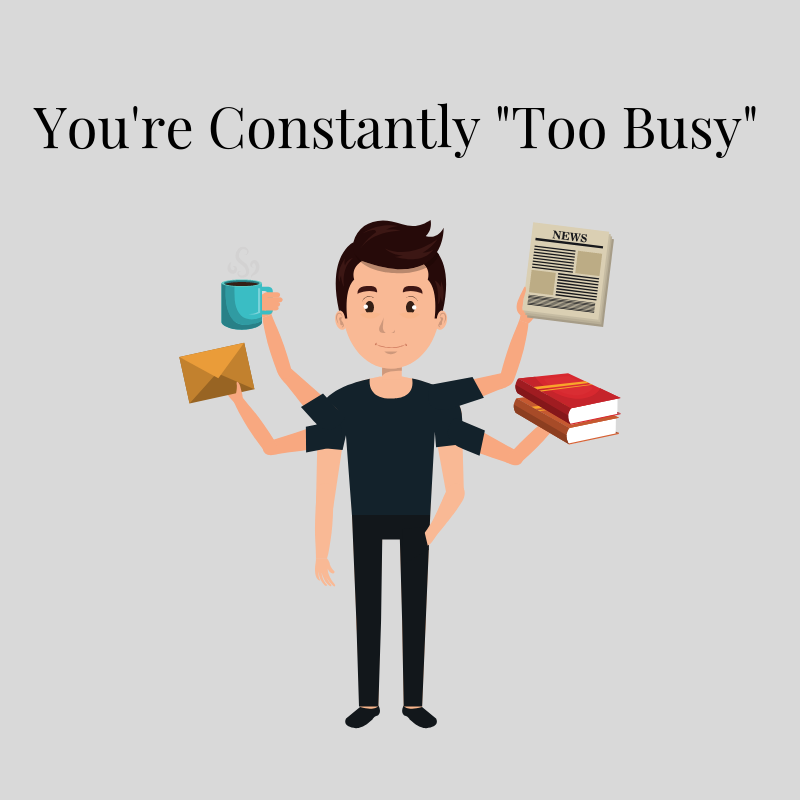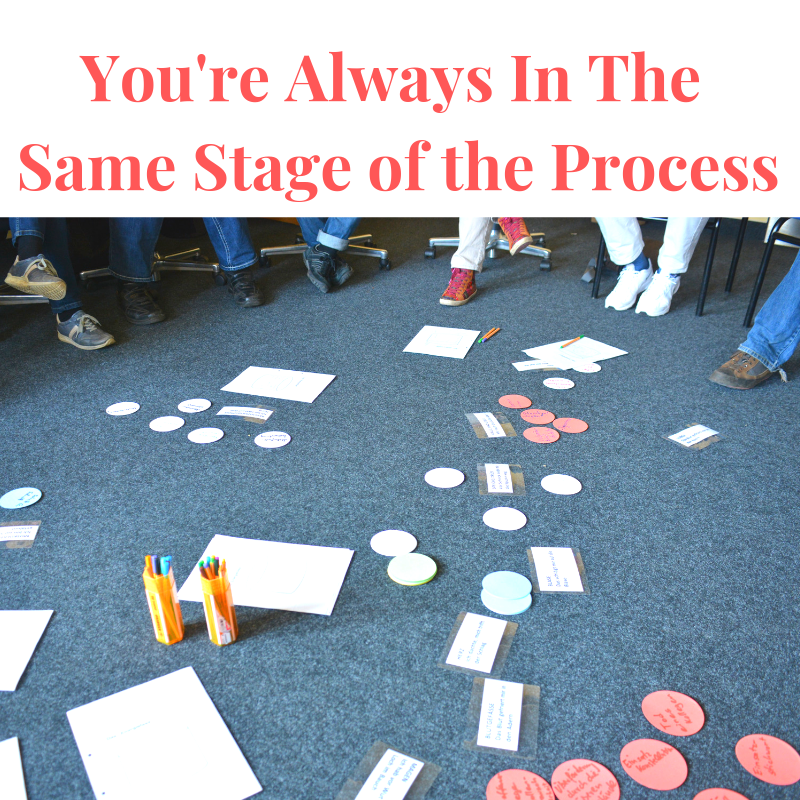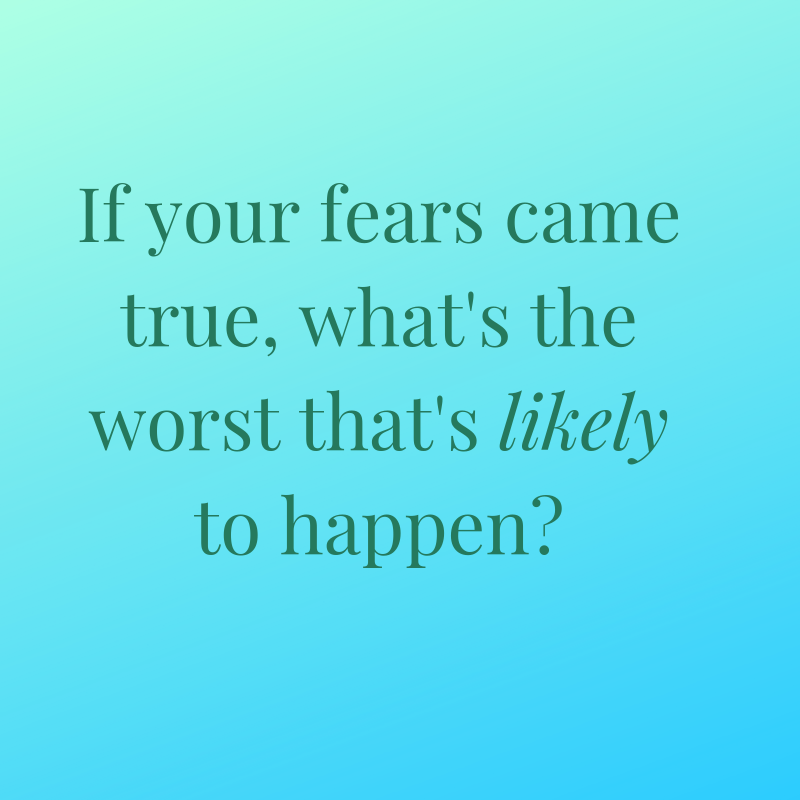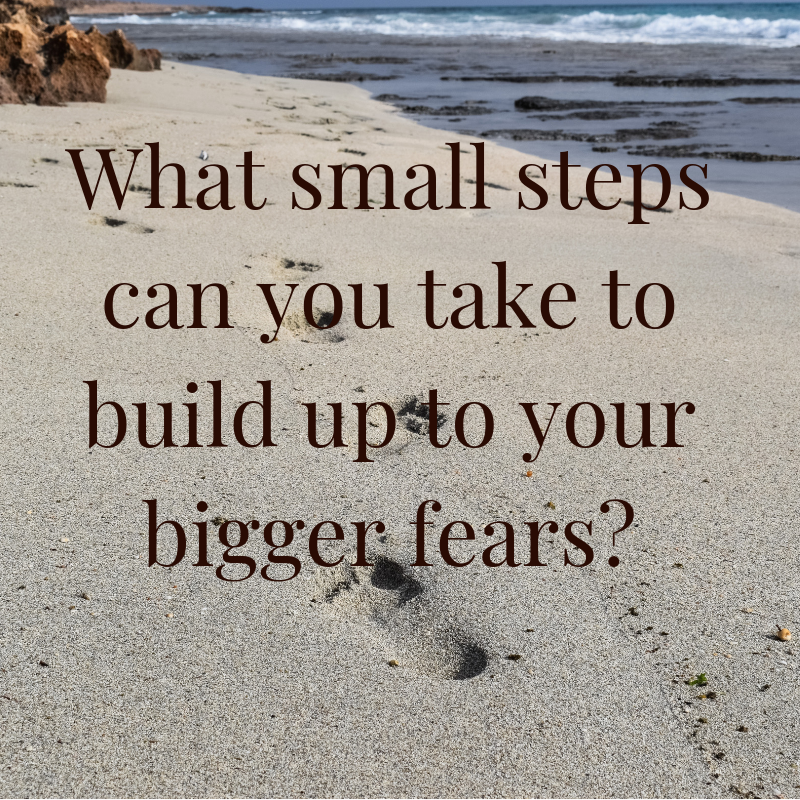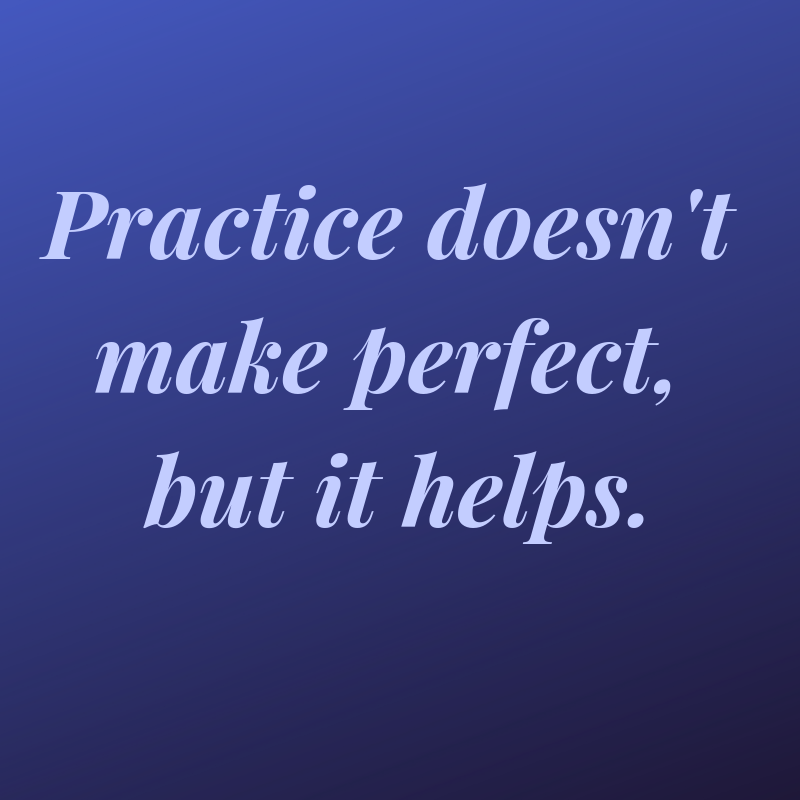Raise your hand if you’ve ever thought or said anything akin to the following:
My blog will never have thousands of followers, so why even keep it up?
This book I’m writing will never be a best seller, so why even try to publish it? (Insert creative outlet here – i.e. My art will never be displayed in a gallery so why bother; I’m never going to be a famous musician so I’m just wasting my time…)
Or on a smaller scale:
I’d like to try my hand at cooking/gardening/knitting/etc but I’ll never be as good as my mom/dad/best friend (insert family member/friend/whoever).
I just wanted this event/holiday/gathering to be perfect and it wasn’t. I’m such a failure.
If any of these sound familiar, you may dabble in all-or-nothing thinking. And in fairness, we probably all have this on some level. Rarely do people cheer because their football team almost won the game. If you’ve ever watched your team lose the super bowl on a game-ending field goal attempt that went wide and to the right, you know that it doesn’t matter how close they were to winning (go ahead and guess my football team now). But unless you’re kicking the potential game winner in the super bowl, rarely does something we aim for have to be categorized as either perfection or a devastating failure.
Often, though, this is where self-sabotage steps in. Many of our brains like to see things as all or nothing, good or bad, success or failure, perfection or devastation. Especially in the throes of depression, our brain is excellent at convincing us that if we can’t achieve our ultimate goal, there’s no sense in trying. Take, for instance, the book example above. In this all or nothing thinking, our brain refuses to see that there’s a whole range between “nobody ever sees this book I’ve drafted” and “I’m a best selling author”. It tells us that we’ll get rejected if we try to publish it. And if we do manage to get published, nobody will read it. And if they do, it’ll get panned – everyone will realize what a crap writer we are and that will be the end of our writing career. We’ll be a laughing stock. Because to our brain, there are only two options – complete success or complete failure. There’s nothing in between. When, in fact, there’s plenty in between:
- I could self-publish our book (and in fact, I know people who have self-published the first, and it did so well a publisher signed on for their next).
- The number of people who read my book could be somewhere in between zero and best-selling author status.
- Some of those people could like the book, even if all of them don’t.
- One person may give it one star while another gives it five.
- I may sell a decent amount, even though we’re not a best seller
- By getting my name “out there” with any type of publishing, I could make a connection I never foresaw, and that connection could help me in the future.
But for some of us, our good old friend fear steps in and gives us an ultimatum: This either has to be perfect, or it’s a failure. And especially when we’re battling depression or anxiety, when we’re feeling particularly vulnerable and hurt, when failure and rejection can do their worse, our brain tries to get us to avoid them at all costs. Thus, self-sabotage.
So what can we do if all-or-nothing thinking sabotages us? My suggestion is to break it down. Let’s look at our goals piece by piece, and that may help us to see where we can still succeed, even if it’s not the “all” of all or nothing. I do this with a series of questions, and it helps to get to the bottom of *why* we think this way.
- What do I want to achieve?
- Why? This piece is critical to the process. List as many reasons as you have. Be honest. It’s completely cool to have a goal of, say, “I could stand to make a little more money.” Not all of your goals have to be big dreamy creative goals. Paying the bills is key too. Or you may say “It makes me feel accomplished/good about myself.” Cool. You deserve that. It’s completely ok to have a you-centered goal (assuming it’s not depriving/hurting others big time).
- Is there any other way to accomplish these goals? Or, put another way, if this doesn’t go perfectly, are there ways you could supplement this, and reach that thing you want to achieve?
- If this doesn’t work as you planned, what can you still gain from it?
- If this particular situation doesn’t work out the way you planned, will this absolutely, without doubt, have to be the final end of this path for you? Note: I said the final end. As in, you can never, ever go down this path again in any way shape or form.
- If the answer above is “no” (hint: it’s almost always no), why not? Why/how might you be able to readjust and follow this path in the future?
- If this doesn’t work out as you hoped, could it lead to something else that does?
These questions, and the answers, help us to see what other possible paths or options might look like. And in doing so, we may come to see that it doesn’t, in fact, have to all go perfectly, exactly this one particular way. And in fact, we may realize that we don’t even know why we held on to some of these thoughts/beliefs/feelings so long, once we look more closely.
I once remember saying to my therapist that because I’d had one rough hour, that the day was ruined. She replied, “Why? You still have another 23 hours to make it a good day.” I try to come back to this now when I’m tempted to “go big or go home’. I would self-sabotage 23 hours of my day, based on the idea that it had to be perfect, instead of accept that one hour was not. I wouldn’t give myself credit for the other 23, no matter how good they were, despite the fact that clearly, they outnumbered the bad hour. And it wasn’t until I started thinking of the bad hour as a chance to make the rest of the day better that my perspective changed. I still struggle with this sometimes, but it’s really helped to pull me away from that thought pattern. It’s the same with goals. It’s great if your goal or dream works out exactly as you hoped. But sometimes it doesn’t. And it helps to keep us moving forward if we plan for alternative options, if we try not to allow our accomplishment to be all or nothing. Because often, the fear that it won’t turn out perfectly stops us from going anywhere at all.

